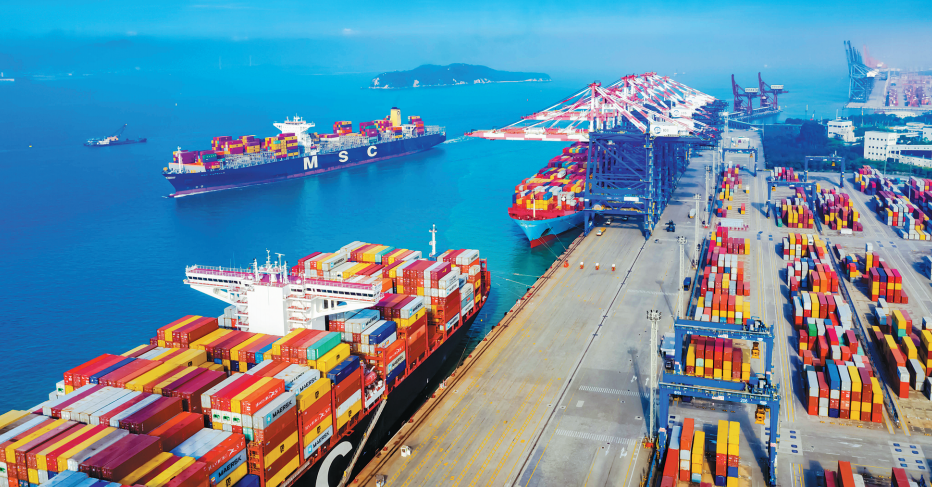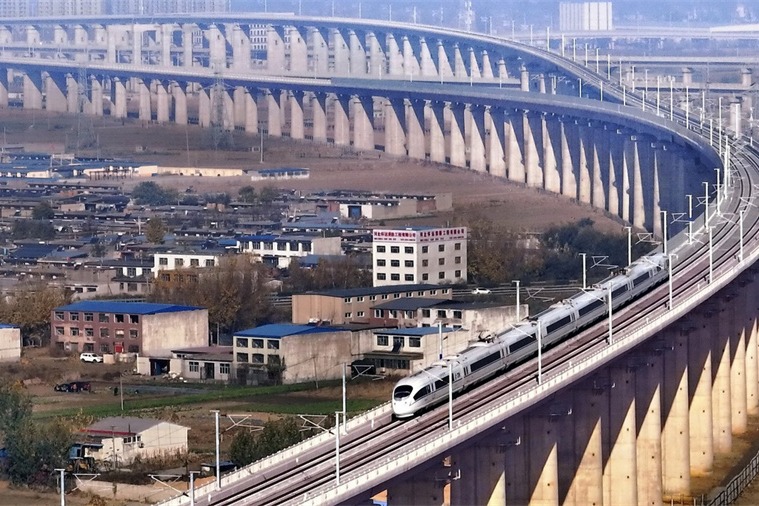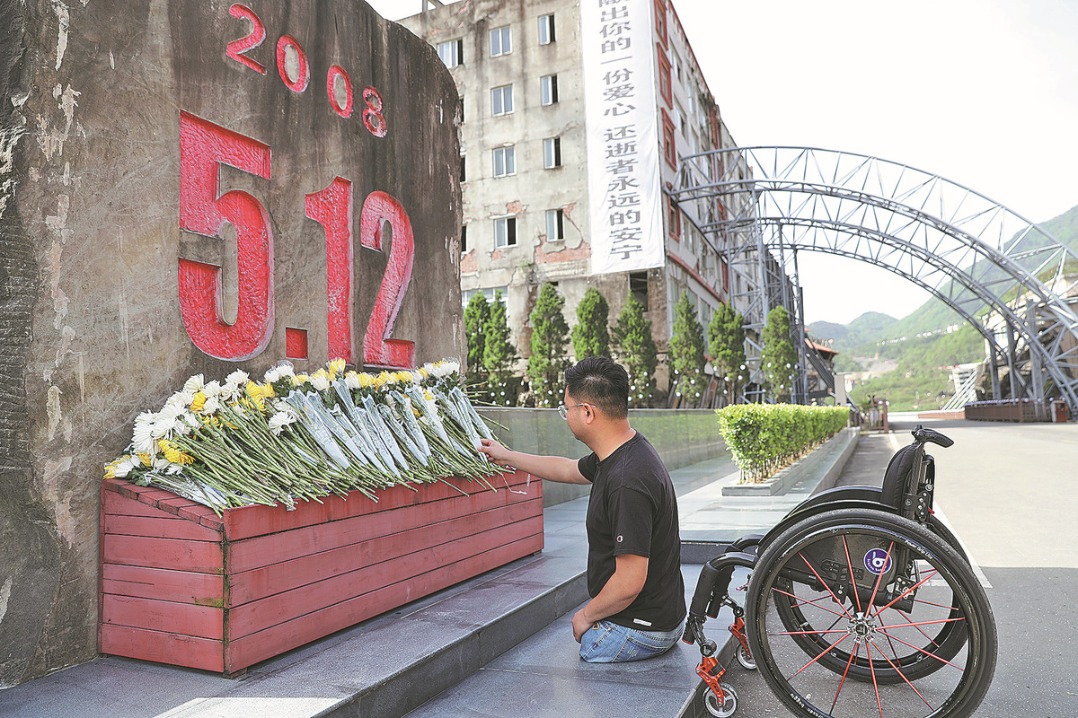Trade, supply chains get fillip in new push
By ZHONG NAN | CHINA DAILY | Updated: 2022-05-27 09:05

China will roll out fresh measures to remove barriers in its foreign trade and bolster the stability of its supply chains, the Ministry of Commerce said on Thursday.
One of the measures will seek to alleviate the pressure of international logistics. The government will facilitate smooth domestic transportation of foreign trade goods, and help COVID-affected foreign trade companies resume production as soon as possible, said Gao Feng, spokesman of the ministry, in an online news briefing.
Under the new policies, foreign trade companies will be able to apply for vehicle passes from local governments to transport key materials.
The official said the government will expand the scale of direct docking business services between global shipping groups and foreign trade companies, as well as provide more container spaces for small and medium-sized enterprises to sell their products overseas.
Also on Thursday, the State Council, China's Cabinet, released a circular to guide foreign trade enterprises through current challenges and maintain steady and high-quality growth of the sector to stabilize the economy, and industrial and supply chains.
Local governments should establish services and safeguard systems for key foreign trade enterprises, and keep track of and solve their difficulties in a bid to support their production and operations. Support from related departments will be provided to stabilize foreign trade supply chains for businesses affected by COVID-19, the circular said.
The circular reiterated that smooth logistics for foreign trade goods will be ensured. While incorporating them into priority goods categories in transportation, local governments should streamline logistics procedures to reduce the waiting time for berths on international liners, and ensure the transport of important parts, devices and products.
Thanks to its complete industrial production system and government's effective measures of balancing economic and social development with COVID-19 prevention and control, China's foreign trade rose by 7.9 percent year-on-year to 12.58 trillion yuan ($1.88 trillion) in the first four months of the year, data from the General Administration of Customs showed.
For the next step, the Ministry of Commerce will enlarge the growth space of China's high-level opening-up platforms such as foreign trade transformation and upgrading bases, comprehensive cross-border e-commerce pilot zones and pilot free trade zones to further optimize the nation's business environment.
In the face of a more complex and severe external environment, Gao said China will continue to advance its accession to the Comprehensive and Progressive Agreement on Trans-Pacific Partnership and the Digital Economy Partnership Agreement, and adhere to high-standard international economic and trade rules.
China will also work with member economies of the Association of Southeast Asian Nations to actively build the 3.0 version of China-ASEAN Free Trade Area, and build strong regional economic and trade relations, he said.
China-ASEAN FTA version 3.0 will create favorable conditions for the development of the Regional Comprehensive Economic Partnership agreement, which took effect on Jan 1, said Xu Ningning, executive president of the China-ASEAN Business Council and chairman of the RCEP Industry Cooperation Committee.
He said it will also provide reference for the upgrading of the FTAs that ASEAN has with Australia, Japan, New Zealand and South Korea, thus laying a solid foundation for the development of the RCEP in the years to come.
Ma Rentao, vice-president of the international trade unit at Beiqi Foton Motor Co Ltd, a subsidiary of Beijing-based BAIC Group, said the company plans to export 1,000 trucks to Malaysia this year.
"Malaysia used to charge as high as 30 percent import tariffs on our trucks, but the tariff rate, under the RCEP agreement, has been cut to 5 percent after we gained the certificate of origin issued by China's Customs authority, saving an average tariff of about 40,000 yuan per truck," he said.
























